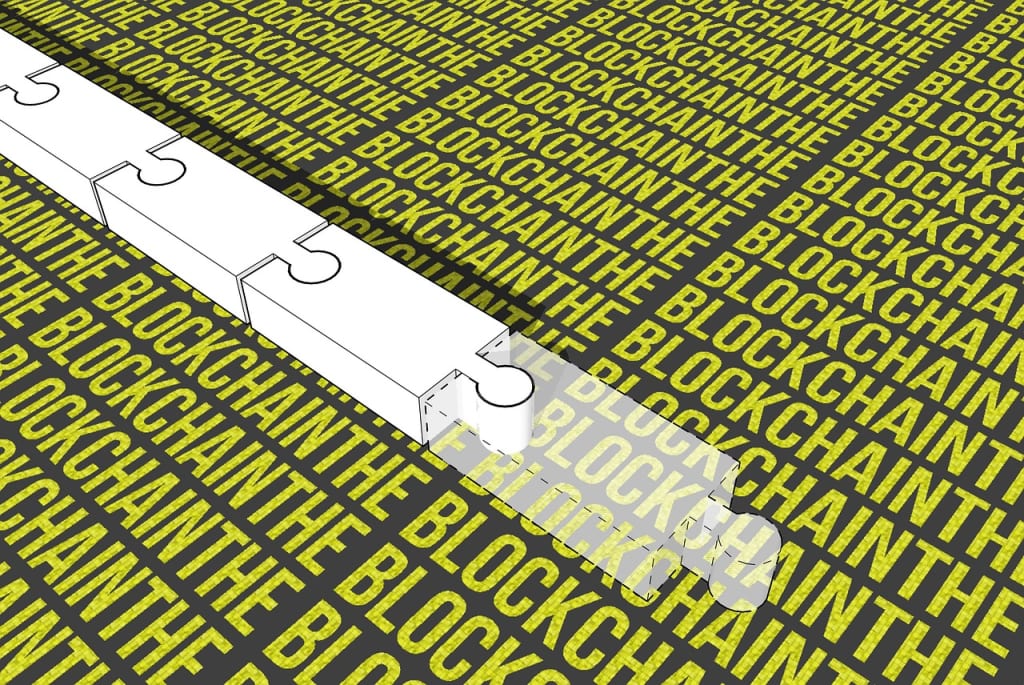Blockchain in Supply Chain Management
Enhancing transparency and traceability in supply chains

Introduction:
Supply chain management plays a crucial role in ensuring the smooth flow of goods and services from manufacturers to consumers. However, traditional supply chain systems often face challenges related to transparency, traceability, and trust. Blockchain technology offers a promising solution to address these issues by providing a decentralized and immutable ledger that enhances transparency and traceability in supply chains. In this article, we will explore the application of blockchain in supply chain management, its benefits, use cases, and challenges.
The Need for Transparency and Traceability in Supply Chains:
Supply chains are complex networks involving multiple participants, including suppliers, manufacturers, distributors, retailers, and consumers. Lack of transparency and traceability can result in inefficiencies, delays, fraud, counterfeiting, and compromised product quality. Traditional supply chain systems heavily rely on centralized databases and manual record-keeping, making it difficult to track and verify the origin, movement, and authenticity of products.
Blockchain Technology in Supply Chain Management:
Blockchain technology provides a decentralized and transparent ledger that records and verifies transactions in a secure and tamper-resistant manner. By implementing blockchain in supply chain management, the following benefits can be achieved:
Enhanced Transparency: Blockchain enables real-time visibility of transactions, allowing all participants to view and track the movement of goods across the supply chain. Each transaction recorded on the blockchain is transparent and can be accessed by authorized parties, promoting trust and accountability.
Immutable Records: Once a transaction is recorded on the blockchain, it cannot be altered or deleted, ensuring the integrity of the supply chain data. This immutability helps to prevent fraud, tampering, and unauthorized modifications of supply chain records.
Improved Traceability: Blockchain provides a decentralized ledger that enables end-to-end traceability of products. Each step of the supply chain, from raw material sourcing to manufacturing, distribution, and delivery, can be recorded and verified on the blockchain, allowing for easy identification of the product's origin, quality, and handling.
Smart Contracts and Automation: Smart contracts, programmable self-executing agreements, can be integrated into the blockchain to automate supply chain processes. These contracts can facilitate automatic verification, execution, and enforcement of terms and conditions, reducing manual errors, delays, and disputes.
Supply Chain Efficiency: Blockchain technology streamlines supply chain processes by reducing paperwork, manual record-keeping, and intermediaries. It enables real-time information sharing, automates data reconciliation, and expedites transactions, leading to improved efficiency, cost savings, and faster product delivery.
Use Cases of Blockchain in Supply Chain Management:
Food Traceability: Blockchain can be used to track the journey of food products, from farm to fork, ensuring safety, quality, and authenticity. Each step, including production, processing, transportation, and storage, can be recorded on the blockchain, enabling consumers to verify the origin and quality of the food they consume.
Pharmaceutical Supply Chain: Blockchain can enhance the transparency and traceability of pharmaceutical supply chains, reducing the risk of counterfeit drugs and ensuring product authenticity. By recording the entire supply chain history, including manufacturing, distribution, and storage, blockchain can help verify the integrity and safety of medications.
Luxury Goods Authentication: Blockchain can be used to authenticate luxury goods, such as high-end watches, jewelry, and artwork. By creating a digital certificate of authenticity on the blockchain, consumers can verify the provenance and ownership of luxury items, reducing the risk of counterfeit products.
Logistics and Freight Management: Blockchain can streamline logistics and freight management by providing real-time tracking of shipments, automating documentation and customs processes, and optimizing supply chain visibility. This can lead to reduced delays, improved inventory management, and enhanced customer satisfaction.
Challenges and Considerations:
Integration Challenges: Implementing blockchain in complex supply chain systems requires collaboration and integration among multiple stakeholders. Existing legacy systems and processes may need to be adapted to work seamlessly with blockchain technology.
Data Privacy and Security: While blockchain provides transparency, ensuring data privacy and security is crucial. Proper authentication, encryption, and access controls must be implemented to protect sensitive supply chain information.
Scalability: As supply chains involve a vast amount of data and transactions, scalability is a significant challenge for blockchain implementation. Efforts are being made to develop scalable blockchain solutions that can handle the volume and speed required by supply chain networks.
Standardization: Establishing common standards and protocols for blockchain implementation in supply chains is essential to ensure interoperability and seamless data exchange between different participants.
Conclusion:
Blockchain technology holds immense potential to revolutionize supply chain management by enhancing transparency and traceability. Through its decentralized and immutable ledger, blockchain enables real-time visibility, immutability of records, improved traceability, and automated processes. Use cases in food traceability, pharmaceutical supply chains, luxury goods authentication, and logistics management demonstrate the practical applications of blockchain in enhancing supply chain efficiency and consumer trust. While challenges such as integration, data privacy, scalability, and standardization need to be addressed, the benefits of blockchain in supply chain management are significant and can reshape the way goods and services are tracked, verified, and delivered across the globe.





Comments
There are no comments for this story
Be the first to respond and start the conversation.